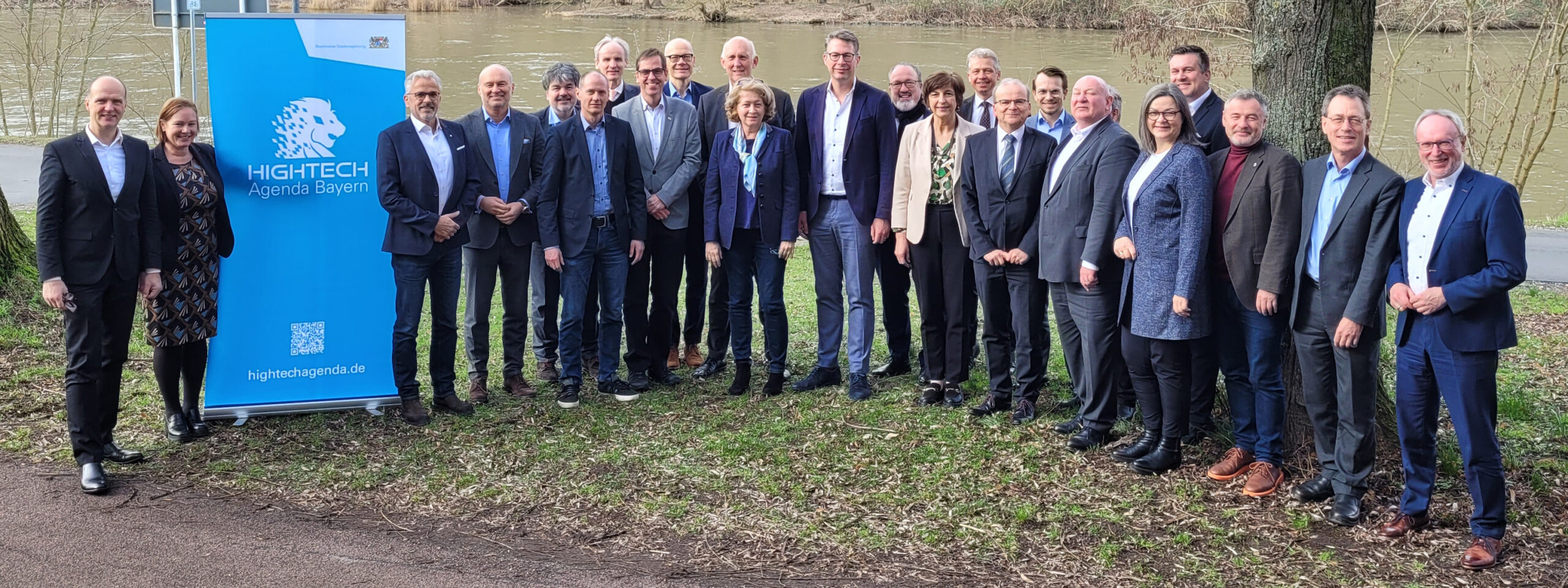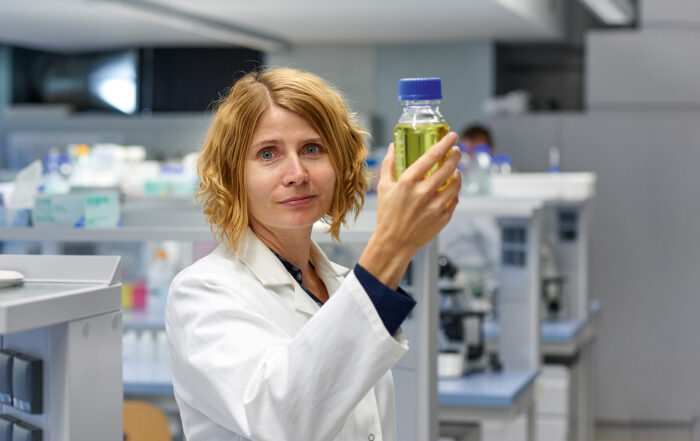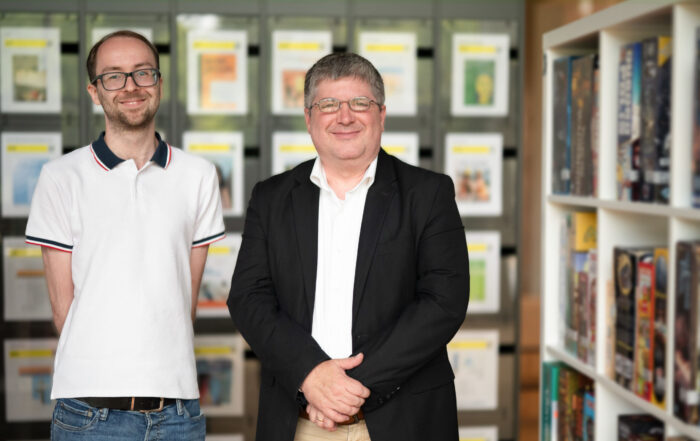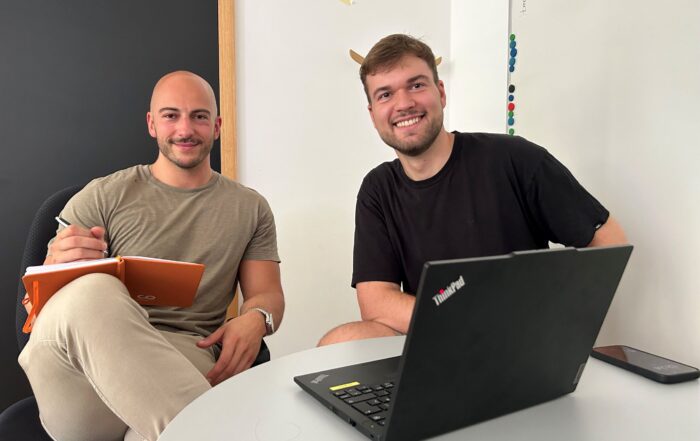28. February '24
At their winter retreat, the presidents of the Bavarian universities of applied sciences met with Minister of State Markus Blume and Head of Office Dr. Rolf-Dieter Jungk to discuss the further development of their type of university.
Coburg University of Applied Sciences was represented by President Prof. Dr. Stefan Gast.
The traditional winter retreat of Hochschule Bayern e.V. took place this year on
20. and
February 21 in Karlstadt am Main.
On the second day of the winter retreat, Prof. Dr. Walter Schober, Chairman of Hochschule Bayern e.V., welcomed the Bavarian Minister of State for Science and the Arts Markus Blume and Head of Office Dr. Rolf-Dieter Jungk to the circle of 19 presidents of Bavarian universities of applied sciences (HAW/TH).
The members of Hochschule Bayern took the opportunity to reflect together with the Minister on the development of the universities (HAW/TH) in recent years and to take a look at future opportunities and challenges.
Increase in the number of students and first-year students at HAWs/THs
Contrary to the nationwide trend of falling student numbers, Bavarian universities of applied sciences and technical universities have once again succeeded in increasing their student numbers to more than 123,700 in the winter semester 2023/24.
In the area of first-year students, the increase compared to the previous year’s figure was even more significant, with an increase of almost eight percent.
At Coburg University of Applied Sciences, this figure is nine percent.
“This development is evidence of the high attractiveness of the diverse and practice-oriented courses on offer at our Bavarian UASs – also in an international environment,” summarizes Schober.
In particular, the number of international students and first-year students has increased significantly at the universities (HAW/TH), which is of great importance in view of the demographic development and the increasing shortage of skilled workers, but also requires more resources due to the higher level of support required for international students.
In this context, the Bavarian UASs not only train the urgently needed highly qualified specialists of tomorrow, but also support the transition of international students into the Bavarian labor market through close partnerships with regional companies as well as language and integration services.
Top performance in research, development and transfer
Bavarian universities of applied sciences and technical universities were also able to present impressive figures in the area of research and transfer to Minister Blume during the joint exchange.
For example, the volume of third-party funding from UASs/UTs in the STEM sector increased by almost 50 percent in 2022 compared to 2018.
The number of spin-offs, scholarships acquired, publications and ongoing doctoral projects also increased significantly.
In addition, over 300 professors were newly appointed.
“The funding of the HAWs/THs as part of the Hightech Agenda Bayern, together with the innovations of the Bavarian Higher Education Innovation Act, has opened up new scope for action for the universities – this is now paying off,” says Prof. Schober.
With a view to the future of the universities (HAW/TH), he continues: “To ensure that the HAWs/THs can continue to fulfill their social mission to this extent and at the same time maintain the competitiveness of Bavaria as a science and business location, adequate funding for the HAWs/THs is an investment in Bavaria’s future, especially in times of tighter budgets.”
Minister of State Markus Blume was impressed by the excellent development of the universities (HAW/TH) and particularly emphasized the importance of this type of university for Bavaria as a science and business location: “Our universities of applied sciences and technical universities are talent incubators and drivers of innovation. They are THE game changer against the shortage of skilled workers – they make optimum use of the opportunities offered by our High-Tech Agenda Bavaria.”
At the closed meeting, the presidents also adopted the “University 2030” position paper drawn up at the end of last year , which outlines the necessary development of HAWs/THs in the coming years.






